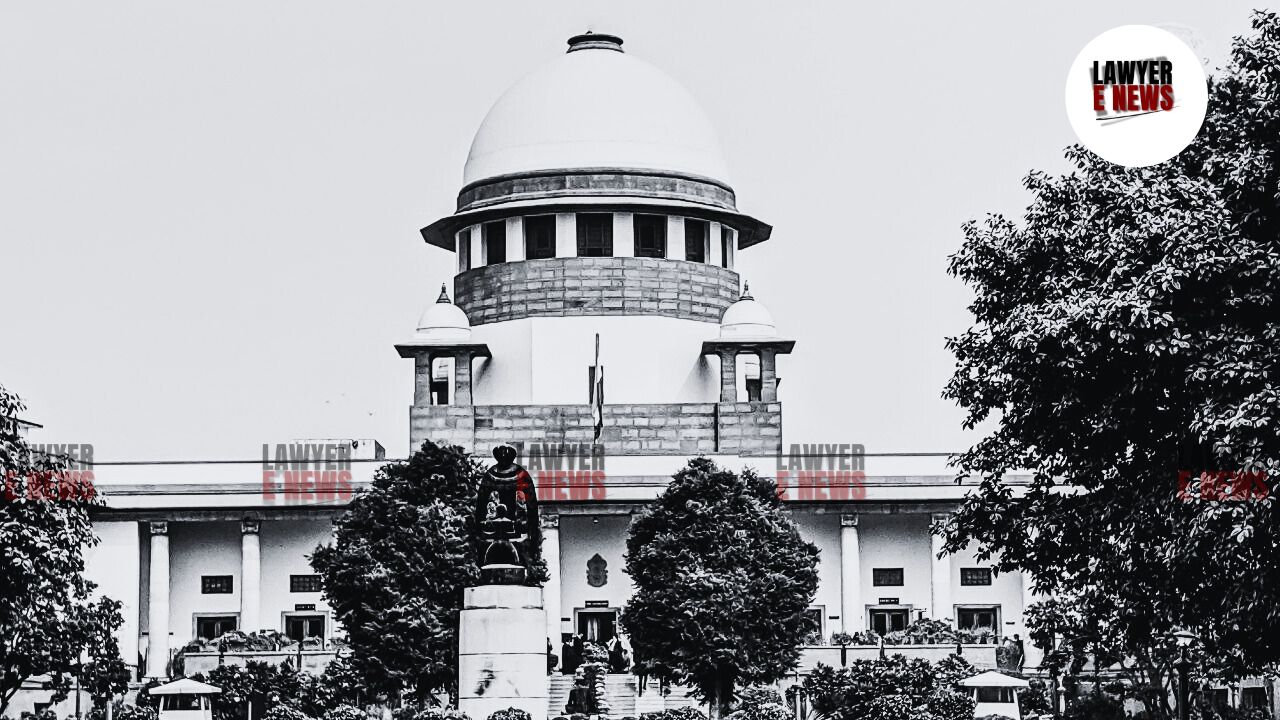-
by Admin
16 February 2026 1:47 PM



“The agreement is one for conducting the business of the first defendant… not for occupying the plaint schedule under leave and license” – In a judgment Supreme Court of India held that a license to conduct business does not confer tenancy rights, and that the nature of an agreement must be judged not by its nomenclature but by its substance and intent. The bench comprising Justices Pankaj Mithal and S.V.N. Bhatti dismissed the appeal in Annaya Kocha Shetty (Dead) through LRs vs. Laxmibai Narayan Satose (Dead) through LRs & Ors., thereby affirming the decisions of the Bombay High Court and the first appellate court, which had held that the appellant was not entitled to the protection of Section 15A of the Bombay Rent Act, 1947.
The Court observed, “The plaintiff has taken over the business under the agreement dated 16.08.1967… With a few minor variations, the agreements referred to above have been entered into, and the plaintiff asserts a change of status only when a notice is served to hand over the business by the first defendant.”
Supreme Court Rules Against Deemed Tenancy in Business Conducting Agreement
The dispute arose from a suit filed by the plaintiff seeking a declaration of deemed tenancy under Section 15A of the Bombay Rent Act with respect to two shop premises in Dadar, Mumbai, where he was running a hotel under an agreement dated 16 August 1967. The plaintiff claimed that he was in possession of the premises on the appointed date, 1 February 1973, and was thus entitled to protection as a deemed tenant.
However, the Supreme Court found that the agreement was clearly one for conducting business, and not for occupying premises under leave and license. It stated, “The entrustment to the plaintiff is the ownership of the hotel business of the first defendant and not the tenancy right of the first defendant in favour of the plaintiff.”
The Court analysed the agreement extensively and noted, “Clause 1 specifically refers to the owner giving to the conductor, and the conductor agreeing to take for conducting the business. That is, the said hotel business of the owner carried on under the name and style of Shri Samarthashraya Vishranti Graha at the aforesaid premises.”
“The Agreement Was Never Intended to Confer Possession of the Premises”: Court Applies Sections 91 and 92 of Evidence Act
Rejecting the claim of deemed tenancy, the Supreme Court stressed the importance of interpreting agreements in accordance with the Evidence Act, 1872, especially Sections 91 and 92, which preclude reliance on oral evidence to vary or contradict the terms of a written agreement.
“Unless and until the case falls under one or the other exceptions enabling receipt of oral evidence on a written document, the court is precluded from entertaining oral evidence,” the Court held, adding that none of the exceptions under the provisos to Section 92 were attracted in the present case.
The Court ruled that the consistent reference to the payment as “royalty,” the language referring to “conductor” and “owner,” and the detailed clauses describing the running of the hotel by the plaintiff, all pointed to a business conducting agreement and not a lease or license. It further clarified, “Including the subject business in the dealership of the plaintiff would not materially alter the position under the agreement dated 16.08.1967.”
“Long Pleadings Distract – Courts Must Invoke Order VI Rule 16”: Apex Court Criticises Drafting Style
In an unusual but sharply worded observation on the state of pleadings in litigation today, the Supreme Court criticized the meandering and verbose pleadings presented in the case. Justice Bhatti remarked, “Every word that is not a help is a hindrance because it distracts... The time has come for courts to invoke the jurisdiction under Order 6 Rule 16 and make litigation workable.”
Quoting both Abraham Lincoln and Shakespeare’s Polonius, the judgment underlined the importance of concise legal drafting, warning that lengthy submissions often obscure the actual issues and add unnecessary burden to courts at every level. “Such lengthy pleadings would even upset Polonius from Shakespeare’s Hamlet,” the Court observed.
“Literal, Golden, and Purposive Rules of Construction Must Be Applied Cautiously”: SC Reiterates Principles of Contract Interpretation
Interpreting the 1967 agreement, the Court reaffirmed that while a literal reading is the primary rule of interpretation, where ambiguity exists, courts may apply golden or purposive rules. It emphasised that, “If the words are clear, there is very little the court can do about it. In constructing a deed, looking at the surrounding circumstances is legitimate only if the words used are doubtful
The Court reiterated its earlier position in Provash Chandra Dalui v. Biswanath Banerjee and Mangala Vaman Karandikar v. Prakash Damodar Ranade, stating that the form and content of the agreement must be read in harmony to ascertain the nature of the legal relationship created.
“Deemed Tenancy Cannot Arise Merely from Conducting Business”: Appeal Dismissed with ₹1 Lakh Costs
Concluding the judgment, the Court observed, “In the case on hand, the terms of the agreement dated 16.08.1967 are clear that the entrustment to the plaintiff is the ownership of the hotel business… not the tenancy right.”
The appeal was dismissed with costs of ₹1,00,000 to be paid to defendant no.1, reaffirming the concurrent findings of the appellate bench and the Bombay High Court.
Date of Decision: April 8, 2025
